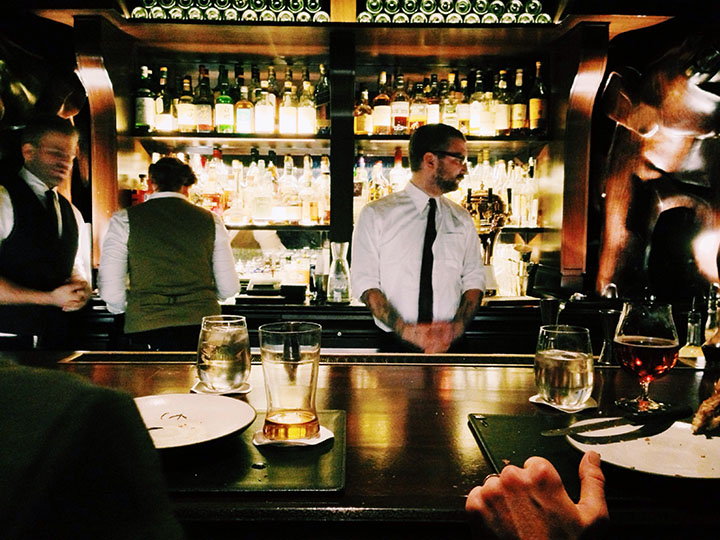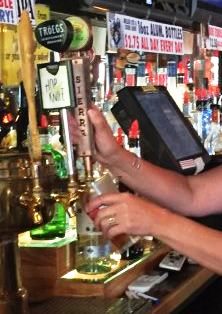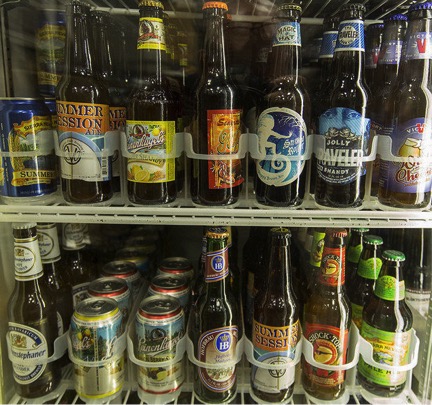 Possible profits for bar owners may now be coming from millennials, the largest US demographic1. Recent statistics show that millennials choose to go out to bars and taverns more frequently and spend more for alcohol on premise than older generations2. Finding ways to cater to their needs could lead to even healthier business. Speaking of healthy…
Possible profits for bar owners may now be coming from millennials, the largest US demographic1. Recent statistics show that millennials choose to go out to bars and taverns more frequently and spend more for alcohol on premise than older generations2. Finding ways to cater to their needs could lead to even healthier business. Speaking of healthy…
Health Conscious Millennials
Preferring to keep themselves fit, millennials gravitate towards healthier food and beverage options. Bartenders can take advantage of this by creating new, low calorie drinks in addition to their regular cocktails. Millennials are attracted to innovative ideas such as low-proof spirits and are more likely to frequent establishments that offer them2. Plus, because these distinct drinks are still specially made, bar owners can charge a price close to that of a standard cocktail.
New Type of Culture
Lifestyle is a key component of the millennial generation and includes everything from clothing to dining and even beverages. Millennials drink as a form of communicating their “identity” and are willing to pay extra for it2. They are drawn towards a variety of beverage types from beer to vodka to mixed drinks to cider, but find any new cocktail concoction to be the most appealing2. Most millennials see trendsetting as part of their “identity”, giving their business to bars that continue to infuse their menus with fresh choices.
Meeting up in groups at taverns has also become a popular activity among millennials. Open to the prospect of unique cocktails and meals, they are turning a “night out at the bar” into a warm, food-and-drink-consuming experience3. The more engaging bar and tavern owners make this experience, the more millennials may increase their stay and, most importantly, the amount of money they spend. Cheers!
This article is written by Robert Falvo.
SOURCES:
- Source: CNN Library, American Generation Fast Facts, 9/4/18, cnn.com
- Source: Harry Hoyer, Millennials Think Before They Drink, 8/18/17, Nielsen.com
- Source: Taphunter, How Bars and Restaurants Can Appeal to Millennials in the Age of Netflix, 3/23/18, taphunter.com





 The Pennsylvania Liquor Control Board (PLCB) reminds interested parties that bids for 25 expired restaurant licenses in the upcoming
The Pennsylvania Liquor Control Board (PLCB) reminds interested parties that bids for 25 expired restaurant licenses in the upcoming 

 In an effort to help bars, restaurants, and taverns better understand various liquor laws and how to avoid fines and penalties, the Pennsylvania Liquor Control Board has put together a list of the most common citation issues. The five Liquor Code violations below are those for which licensees most frequently receive citations from the Pennsylvania State Police Bureau of Liquor Control Enforcement. Following each violation, we provide clarification on what the law requires and some tips on how to remain compliant.
In an effort to help bars, restaurants, and taverns better understand various liquor laws and how to avoid fines and penalties, the Pennsylvania Liquor Control Board has put together a list of the most common citation issues. The five Liquor Code violations below are those for which licensees most frequently receive citations from the Pennsylvania State Police Bureau of Liquor Control Enforcement. Following each violation, we provide clarification on what the law requires and some tips on how to remain compliant.
 Riverfront Times reported on February 4, 2019
Riverfront Times reported on February 4, 2019 New officers include
New officers include



